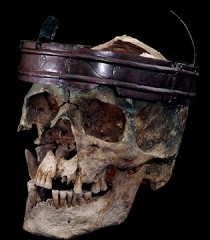|
[Majorityrights News] Another dramatic degradation of Russia’s combat capacity Posted by Guessedworker on Wednesday, 23 April 2025 08:49. [Majorityrights Central] A British woman in Ukraine and an observer of Putin’s war Posted by Guessedworker on Monday, 14 April 2025 00:04. [Majorityrights News] France24 puts an end to Moscow’s lie about the attack on Kryvyi Riy Posted by Guessedworker on Monday, 07 April 2025 17:02. [Majorityrights News] If this is an inflection point Posted by Guessedworker on Thursday, 03 April 2025 05:10. [Majorityrights News] Sikorski on point Posted by Guessedworker on Friday, 28 March 2025 18:08. [Majorityrights Central] Piece by peace Posted by Guessedworker on Wednesday, 19 March 2025 08:46. [Majorityrights News] Shame in the Oval Office Posted by Guessedworker on Saturday, 01 March 2025 00:23. [Majorityrights News] A father and a just cause Posted by Guessedworker on Tuesday, 25 February 2025 23:21. [Majorityrights Central] Into the authoritarian future Posted by Guessedworker on Friday, 21 February 2025 12:51. [Majorityrights Central] On an image now lost: Part 2 Posted by Guessedworker on Saturday, 15 February 2025 14:21. [Majorityrights News] Richard Williamson, 8th March 1940 - 29th January 2025 Posted by Guessedworker on Monday, 03 February 2025 10:30. [Majorityrights Central] Freedom’s actualisation and a debased coin: Part 2 Posted by Guessedworker on Saturday, 11 January 2025 01:08. [Majorityrights News] KP interview with James Gilmore, former diplomat and insider from first Trump administration Posted by Guessedworker on Sunday, 05 January 2025 00:35. [Majorityrights Central] Aletheia shakes free her golden locks at The Telegraph Posted by Guessedworker on Saturday, 04 January 2025 23:06. [Majorityrights News] Former Putin economic advisor on Putin’s global strategy Posted by Guessedworker on Monday, 30 December 2024 15:40. [Majorityrights News] Trump will ‘arm Ukraine to the teeth’ if Putin won’t negotiate ceasefire Posted by Guessedworker on Tuesday, 12 November 2024 16:20. [Majorityrights News] Olukemi Olufunto Adegoke Badenoch wins Tory leadership election Posted by Guessedworker on Saturday, 02 November 2024 22:56. [Majorityrights News] What can the Ukrainian ammo storage hits achieve? Posted by Guessedworker on Saturday, 21 September 2024 22:55. [Majorityrights Central] An Ancient Race In The Myths Of Time Posted by James Bowery on Wednesday, 21 August 2024 15:26. [Majorityrights Central] Slaying The Dragon Posted by James Bowery on Monday, 05 August 2024 15:32. [Majorityrights Central] The legacy of Southport Posted by Guessedworker on Friday, 02 August 2024 07:34. [Majorityrights News] Farage only goes down on one knee. Posted by Guessedworker on Saturday, 29 June 2024 06:55. [Majorityrights News] An educated Russian man in the street says his piece Posted by Guessedworker on Wednesday, 19 June 2024 17:27. [Majorityrights Central] Freedom’s actualisation and a debased coin: Part 1 Posted by Guessedworker on Friday, 07 June 2024 10:53. [Majorityrights News] Computer say no Posted by Guessedworker on Thursday, 09 May 2024 15:17. [Majorityrights News] Be it enacted by the people of the state of Oklahoma Posted by Guessedworker on Saturday, 27 April 2024 09:35. [Majorityrights Central] Ukraine, Israel, Taiwan … defend or desert Posted by Guessedworker on Sunday, 14 April 2024 10:34. [Majorityrights News] Moscow’s Bataclan Posted by Guessedworker on Friday, 22 March 2024 22:22. [Majorityrights News] Soren Renner Is Dead Posted by James Bowery on Thursday, 21 March 2024 13:50. [Majorityrights News] Collett sets the record straight Posted by Guessedworker on Thursday, 14 March 2024 17:41. [Majorityrights Central] Patriotic Alternative given the black spot Posted by Guessedworker on Thursday, 14 March 2024 17:14. [Majorityrights Central] On Spengler and the inevitable Posted by Guessedworker on Wednesday, 21 February 2024 17:33. [Majorityrights News] Alex Navalny, born 4th June, 1976; died at Yamalo-Nenets penitentiary 16th February, 2024 Posted by Guessedworker on Friday, 16 February 2024 23:43. [Majorityrights News] A Polish analysis of Moscow’s real geopolitical interests and intent Posted by Guessedworker on Tuesday, 06 February 2024 16:36. Majorityrights News > Category: Global ElitismI have learned a trick for a very likely way to find an image of a beautiful woman in an Internet image search: search the name “Dagmara.” Chances are that you’ll come up with a beauty. But this time the story came up first, i.e., of a beautiful Dagmara having committed suicide for having been bullied, probably by jealous girls of other ethnicities and races. The price of gratuitous jealousy is a terrible one; and females can be particularly vicious. You might ask me, “what was Dagmara doing in Cornwall?” and I would answer that Dagmaras should not be in The U.K. in any great number. That if her kind were there in smaller numbers that the genetic threat may not have risen to such hostility. I would add, sarcastically with regard to liberalism, that “racial classifications are not working hypotheses that allow the security of accountability to a just and historically coherent human ecology, agency and warrant, no.” I would add just as sarcastically in the other direction, the conventional racialist direction, “no, they are a fact of natural struggle, survival of the fittest” ... That does bring to mind another right-wing whipping boy - their crusade against anti-bullying. Yes, isn’t bullying a wonderful thing, we all need that school of hard knocks ad nauseam - survival of the jealous and ugly, er, “the fittest.” ... “those ‘leftist’ social justice warriors just don’t appreciate realty.” That right wing “naturalness” compounds the dilemma that defending Dagmara places before those of us who might care; a dilemma placed before us by right-wing perfidy: We can subject her to performance requirements of liberal Darwinism and YKW - “see how terrible ‘racism’ (accountability to human ecology) is? We need to mix people even more because its just, you know, best for everyone; whatever.” And there is the other option for a Polish girl such as Dagmara, of course - she can find security and fellowship with those who embrace the ideology of Adolf Hitler. Thanks Right Wing!
Monsanto Protests Germany, France
 Celtic Jewelry of the native Britons 2000 years ago Celtic Jewelry of the native Britons 2000 years ago In England 2,000 years ago lived the “Celtic people”. They were the first Britons. They lived on small farms and in small tribal villages all over England. They often fought with other Celtic tribes. In England 2,000 years ago lived the “Celtic people”. They were the first Britons. They lived on small farms and in small tribal villages all over England. They often fought with other Celtic tribes.Dieneke’s Blog, May 08, 2016 Natural selection in Britain during the last 2,000 years: The latest ancient DNA studies from the British Isles (Schiffels et al and Martiniano et al. and Cassidy et al.) support continuity over the last 2,000 years. Sure, there were continued migrations like the arrival of the Anglo-Saxons, but these were very similar groups in the grand scheme of things. But, while ancestrally the modern Briton is probably a descendant of the Britons of 2,000 years ago with some admixture from similar continental European groups, he is not the same, as (apparently) substantial genetic adaptation has continued to operate in Britain over the same period. A new preprint by Field, Boyle, Telis et al. makes the case for adaptation in a variety of traits in the ancestors of Britons over this period. Mind you, the genetic underpinnings of many important human traits known to have high heritability are currently unknown, but there is little doubt that selection would have affected traits beyond those detected in this study. I am quite curious to see whether the striking efflorescence of cultural achievement in Britain over the last half millennium could have (at least in part) a genetic underpinning. Depigmentation is a trait whose genetic architecture is as well as understood as any. The results of this study might surprise writers of decades and centuries past who supposed that the spectrum of pigmentation of modern Europeans was the result of admixture-in varying measure- between Xanthochrooi and Melanchrooi races of primordial antiquity. All indications seem to be that depigmentation of hair, skin, and eyes did not co-occur in such a hypothetical race, but rather in different parts of the Caucasoid range, only reaching a high combined frequency in northern Europe to form the distinctive physical type that is distinctive of the natives of that region. It would be quite interesting to see how these traits evolved in Fennoscandia and the Baltic, regions that sport an even higher depigmentation than the British Isles. Traditionally, these areas were viewed as refuges of the Xanthochrooi but it may very well turn out to be that for whatever reason selection has acted in that area as well, as it did in the Eastern European plain where rather dark Bronze Age steppe groups gave way to rather light pigmented living eastern Slavs. bioRxiv doi: http://dx.doi.org/10.1101/052084 Detection of human adaptation during the past 2,000 years Yair Field, Evan A Boyle, Natalie Telis, Ziyue Gao, Kyle J Gaulton, David Golan, Loic Yengo, Ghislain Rocheleau, Philippe Froguel, Mark I McCarthy, Jonathan K Pritchard Detection of recent natural selection is a challenging problem in population genetics, as standard methods generally integrate over long timescales. Here we introduce the Singleton Density Score (SDS), a powerful measure to infer very recent changes in allele frequencies from contemporary genome sequences. When applied to data from the UK10K Project, SDS reflects allele frequency changes in the ancestors of modern Britons during the past 2,000 years. We see strong signals of selection at lactase and HLA, and in favor of blond hair and blue eyes. Turning to signals of polygenic adaptation we find, remarkably, that recent selection for increased height has driven allele frequency shifts across most of the genome. Moreover, we report suggestive new evidence for polygenic shifts affecting many other complex traits. Our results suggest that polygenic adaptation has played a pervasive role in shaping genotypic and phenotypic variation in modern humans.
 Viktor Orban and Premier Beata Szydło Viktor Orban and Premier Beata Szydło
Poland and Hungary: Tactical alliance or strategic partnership? Commentary for New Eastern Europe…
Page 99 of 104 | First Page | Previous Page | [ 97 ] [ 98 ] [ 99 ] [ 100 ] [ 101 ] | Next Page | Last Page |
|

Existential IssuesDNA NationsCategoriesContributorsEach author's name links to a list of all articles posted by the writer. LinksEndorsement not implied. Immigration
Islamist Threat
Anti-white Media Networks Audio/Video
Crime
Economics
Education General
Historical Re-Evaluation Controlled Opposition
Nationalist Political Parties
Science Europeans in Africa
Of Note MR Central & News— CENTRAL— Piece by peace by Guessedworker on Wednesday, 19 March 2025 08:46. (View) Into the authoritarian future by Guessedworker on Friday, 21 February 2025 12:51. (View) On an image now lost: Part 2 by Guessedworker on Saturday, 15 February 2025 14:21. (View) — NEWS — If this is an inflection point by Guessedworker on Thursday, 03 April 2025 05:10. (View) Sikorski on point by Guessedworker on Friday, 28 March 2025 18:08. (View) Shame in the Oval Office by Guessedworker on Saturday, 01 March 2025 00:23. (View) CommentsAl Ross commented in entry 'What lies at the core' on Sat, 16 Mar 2024 03:28. (View) Thorn commented in entry 'What lies at the core' on Mon, 11 Mar 2024 12:23. (View) Al Ross commented in entry 'What lies at the core' on Mon, 11 Mar 2024 03:56. (View) Guessedworker commented in entry 'What lies at the core' on Mon, 11 Mar 2024 00:54. (View) James Bowery commented in entry 'What lies at the core' on Sun, 10 Mar 2024 20:45. (View) Guessedworker commented in entry 'What lies at the core' on Sun, 10 Mar 2024 20:12. (View) Guessedworker commented in entry 'What lies at the core' on Sun, 10 Mar 2024 20:09. (View) James Bowery commented in entry 'What lies at the core' on Sun, 10 Mar 2024 18:49. (View) Thorn commented in entry 'What lies at the core' on Sun, 10 Mar 2024 13:33. (View) Guessedworker commented in entry 'What lies at the core' on Sun, 10 Mar 2024 12:45. (View) Thorn commented in entry 'What lies at the core' on Sun, 10 Mar 2024 11:25. (View) Guessedworker commented in entry 'What lies at the core' on Sun, 10 Mar 2024 04:38. (View) James Bowery commented in entry 'What lies at the core' on Sun, 10 Mar 2024 00:17. (View) Guessedworker commented in entry 'What lies at the core' on Sat, 09 Mar 2024 12:04. (View) James Bowery commented in entry 'What lies at the core' on Fri, 08 Mar 2024 16:02. (View)  
|